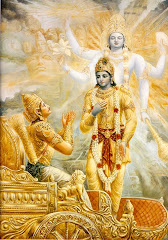
I came across this 'gem' while trawling the net... and feel like to share it here. It is a must read... I tell you!
Frankly... with no centralized Islamic religious authority like the Pope or the Dalai Lama, pretty much any Muslim "scholar" can issue a fatwa, a religious edict for modern life supposedly guided by the holy Koran or the (less authoritative) hadiths - stories from Prophet Muhammad's life. In recent years, supply has far outstripped demand, and it's getting plain hilarious. Some fatwas are harmless and a little mundane, but lately, some Islamic jurists/scholars have gone bonkers! But then... its good entertainment for us... what?? Now read on...
Headline: Saudi Clerics Advocate Adult Breast-Feeding.
Women in Saudi Arabia should give their breast milk to male colleagues and acquaintances in order to avoid breaking strict Islamic law forbidding mixing between the sexes, two powerful Saudi clerics have said. They are at odds, however, over precisely how the milk should be conveyed.
A fatwa issued recently about adult breast-feeding to establish "maternal relations" and preclude the possibility of sexual contact has resulted in a week's worth of newspaper headlines in Saudi Arabia. Some have found the debate so bizarre that they're calling for stricter regulations about how and when fatwas should be issued.
Sheikh Al Obeikan, an adviser to the royal court and consultant to the Ministry of Justice, set off a firestorm of controversy recently when he said on TV that women who come into regular contact with men who aren't related to them ought to give them their breast milk so they will be considered relatives.
"The man should take the milk, but not directly from the breast of the woman," Al Obeikan said, according to Gulf News. "He should drink it and then becomes a relative of the family, a fact that allows him to come in contact with the women without breaking Islam's rules about mixing."
Obeikan said the fatwa applied to men who live in the same house or come into contact with women on a regular basis, except for drivers.
Al Obeikan, who made the statement after being asked on TV about a 2007 fatwa issued by an Egyptian scholar about adult breast-feeding, said that the breast milk ought to be pumped out and given to men in a glass.
But his remarks were followed by an announcement by another high-profile sheik, Abi Ishaq Al Huwaini, who said that men should suckle the breast milk directly from a woman's breast.
Shortly after the two sheiks weighed in on the matter, a bus driver in the country's Eastern Region reportedly told one of the female teachers whom he drives regularly that he wanted to suckle milk from her breast. The teacher has threaten to file a lawsuit against him.
The fatwa stems from the tenets of the strict Wahhabi version of Islam that governs modern Saudi Arabia and forbids women from mixing with men who are not relatives. They are also not allowed to vote, drive or even leave the country without the consent of a male "guardian."
Under Islamic law, women are encouraged to breast-feed their children until the age of 2. It is not uncommon for sisters, for example, to breast-feed their nephews so they and their daughters will not have to cover their faces in front of them later in life. The custom is called being a "breast milk sibling."
But under Islamic law, breast milk siblings have to be breastfed before the age of 2 in five "fulfilling" sessions. Islam prohibits sexual relations between a man and any woman who breastfed him in infancy. They are then allowed to be alone together when the man is an adult because he is not considered a potential mate.
"The whole issue just shows how clueless men are," blogger Eman Al Nafjan wrote on her website. "All this back and forth between sheiks and not one bothers to ask a woman if it's logical, let alone possible to breastfeed a grown man five fulfilling breast milk meals."
Moreover, the thought of a huge hairy face at a woman's breast does not evoke motherly or even brotherly feelings. It could go from the grotesque to the erotic but definitely not maternal."
Al Nafjan said many in the country were appalled by the fatwa.
"We have many important issues that need discussing," Al Nafjan told AOL News Friday. "It's ridiculous to spend time talking about adult breast-feeding."
Unlawful mixing between the sexes is taken very seriously in Saudi Arabia. In March 2009, a 75-year-old Syrian widow, Khamisa Mohammed Sawadi, living in the city of Al-Chamil, was given 40 lashes and sentenced to six months in prison after the religious police learned that two men who were not related to her were in her house, delivering bread to her.
One of the two men found in her house, Fahd, told the police that Sawadi breast-fed him as a baby so he was considered a son and had a right to be there. But in a later court ruling, a judge said it could not be proved that Fahd was her "breast milk son." Fahd was sentenced to four months in prison and 40 lashes, and the man who accompanied him got six months and 60 lashes.
The original adult breast-feeding fatwa was issued three years ago by an Egyptian scholar at Egypt's al-Azhar University, considered Sunni Islam's top university. Ezzat Attiya was expelled from the university after advocating breast-feeding of men as a way to circumnavigate segregation of the sexes in Egypt.
A year ago, Attiya was reinstated to his post.
These modern "scholars" believe in equal opportunity for both living and non-living things. There was a fatwa against the vuvuzela too... in the UAE! An Abu Dhabi businessman, Dhia al-Din, had planned to import 10,000 of them into the United Arab Emirates. But the trusty General Authority of Islamic Affairs and Endowments in that country intervened on public health grounds, issuing fatwa number 11625... which decreed the vuvuzela haram above 100 decibels. The fatwa or considered legal opinion, holds that scientific studies show that sounds over 100 decibels are bad for the ears, and that the typical vuvuzela emits 126 decibels. So unless someone invented a 'soft-spoken vuvuzela', the instrument was illicit in the Emirates. Now if only the muftis' attention could be drawn to the kazoo.
Wonder what about traffic noise and the loud music at wedding parties?? I also wonder if loudspeakers used for call to prayer might be condemned by fatwas, as they may produce sound greater than 100 decibles...
A fatwa was raised against Bollywood shirtless thunder Salman Khan (born: Abdul Rashid Salim Salman Khan) by a Muslim cleric in India, mufti Salim Ahmad Qasmi, for allowing Madame Tussauds in London to make a wax model of himself. The mufti said the statue is illegal and the Sharia forbids depictions of all living creatures. This created speculation in the press, as no fatwa was released against fellow Muslim, Shahrukh Khan who also has a wax model in the museum. Salman responded by saying, "These fatwas are becoming a joke".
Here is a list of Top 10 bizzare or ridiculous fatwas. Must say all these "scholars" and the numerous fatwas issued by them... bolster the caricature of this religion in the West and the demagoguery of the "jihadis" within their own ranks.
Wonder what the wise Mullah Naseeruddin... known for his wit and sense of humour... would have said though. Many of the tales (associated with him) reveal popular 'truths' that contradict the stern rule and law of organized religious authorities. They make one think, pause for a moment and reflect on the life and the situation we find ourselves in, on the status of our existence and being, the social structure we live within. The hero of the commoner, the bain of the king, cleric and the stiff-necked erudite scholar, who are seemingly always put in their place. The city of Bukhara in Uzbekistan also has a statue of him riding his donkey backwards and grasping its tail (as he is traditionally depicted). The vision of a clergyman/fool riding backwards on his donkey alone causes people to laugh hysterically, whether at Nasruddin, the ulema, the ruler of the land, or at themselves. Listen to any Nasruddin story and you'll inevitably find that they poke fun at religious figures and political authority. The very title of "mullah" or "hodja" that accompanies his name reflects that very human reluctance on the part of many to take many such men seriously.
Muslim saints and mystics use the symbolism of the donkey representing the ego to explain to the unenlightened how the awrad, or practices can be used to train the beast of burden to carry the murid to their spiritual stations. The immortal folk character Mullah Nasruddin/Nasruddin Hodja (now aged 802 years) used humour throughout his life... in order to teach. ("Mullah" means teacher, learned man). There are only a few established facts about him. He was born in a small village near Sivrihisar and later settled in Aksehir in Turkey, where he lies buried. The interesting date 386 was found on a gravestone. Considering the humour of riding his donkey backwards, the date was read backwards, i.e. 683. This date in the hijra calendar corresponds to the year 1284. But some sources claim Nasruddin's birth year as 1208, which would make 2008 his 800th birthday.
Other documents also supports him dying in Aksehir in this year. The village of Hortu near the town of Sivrihisar is the birthplace of the Hodja, where a gravestone dated 1327, belongs to his daughter Fatima, and indicates that she lived for 43 years after his death. His grave has huge ornate wrought iron gates with a massive padlock on them. But if you intend to pay him a visit, you needn't be discouraged by the locked gates. His mausoleum has no walls!
Nasrudin's name is augmented by the title of "mullah" or "hodja", depending upon where the story comes from. People in the Islamic world claim his origin to be Uzbek, Persian, Turkish, Albanian or Pashtun, but he is beyond any ethnic connection, because his stories are basic and relate to every living and thinking human being.
The social symbolism of a silly man/simpleton with a religious title sitting backwards on a donkey reeks of a derisive and pessimistic attitude towards authority, both religious and secular, among those who adore the tales. Ever clever and seemingly able to outwit any foe with ease, Mullah Nasruddin ("MULL-ah nas-rrh-DEEN") brings scholars, imams, clerics, princes and kings down to the common level, kicks them in the butt and slaps them in the face as if with pie. He disrobes them, reveals their true, inner selves, which is more often than not a greedy, selfish and hypocritical self that is rotten at the core.
Abuse and oppression end whenever Nasruddin is challenged to an intellectual duel. He wins, and so does the common man and woman, who, by telling and sharing these tales, lets the oppressive authority in power know that they are being watched, that common people cannot be fooled and lied to, that righteousness will triumph and the powerful will fall into disgrace and shame. It is their just reward for lies, deceit, and manipulation.
Here is one such story.
The King called for Nasruddin to undertake a study. He asked Nasruddin to travel to the ends of the Earth and record the traditions, beliefs and practices of all the worlds religions, and see what it is that they all have in common. No expense would be spared. Whatever Nasruddin needed, he would just simply need to ask and it was granted, for the King wanted this undertaking to be remembered as one of the great studies in human history, the compilation of the all the worlds religious beliefs. Nasruddin set out on his journey across the world, his travel expenses financed by the King himself.
After 20 years, Nasruddin returned to the court of the King, and handed in his report, which contained but one word; carrots.
Needless to say, the King was furious. "I send you around the world, give you everything you need; money, travel expenses, ships, camels, horses, men at arms to protect you, scribes and secretaries, and you return to me with a single, stupid word?"
The King motioned for his executioner to take Nasruddin away. "Before I have you cut into a hundred pieces, I will let you explain your arrogant insolence".
"Well, your majesty" said Nasruddin, " the worlds' religions' are like carrots. You see, they are recognized by their green tops, which are inedible. But the real fruit, the truth, lies buried, under the ground. That is what I found common to all faiths."
The King was speechless, because he knew that Nasruddin was right. He dismissed him and took up gardening. His favorite crop: carrots.
The above story, a popular folk tale, illustrates the understanding among the common people about the dubiousness of the veracity and originality of faith. It is clear that there were many people in past centuries that had their doubts about the origins of religions. And since these particular tales come from the Islamic world, commonly recited enough among common Muslims, must mean that Islam's origins were always in question as well by a great mass of Muslims.
Perhaps these 'Nasruddin' tales and others like them came about after the rise of literalists like Ibn Taymiyya, so as to keep alive the memory of the former years when Muslim scholars held vastly differing views about the origins of the Islamic faith, views that manifested themselves in over 135 schools of thought and in the varied practices found among the many Sufi groups.
Islam's own doubting Thomas, Al Razi, wrote a treatise on atheism, and was tolerated for his unorthodox views. He wouldn't remain alive a single day in Ibn Taymiyya's or ol' man Wahabs' idea of an Islamic utopia. Neither would the questionable Omar Khayyám.
But Nasruddin would keep alive the intellect and the questioning, inquisitive mind among the masses. Through a thousand stories and tales, the mullah/hodja pokes fun at supposed authority and kept the tradition of free thought and intellectualism alive in some very hostile environments. And he's still at it, to this very day.
All those who call for the reform of Islam owe Nasruddin a great debt, and we can honor him by repeating the tales and learning from them. The man sitting on a donkey facing backwards has the ability to topple the mightiest regimes.
Nasruddin lives and acts as long as we tell his tales. Then, he will liberate us for good. Nasruddin is us, and we, him.
One day, Nasruddin came into a town where he noticed a noisy crowd gathered by the river which ran through the middle of the town. He asked what the ruckus was all about, and an old man told him that the local imam fell into the river and cannot swim.
"Give me your hand, oh reverend, so I can pull you out of the river" said a young lad. "Here, here, reach out and just give me your hand" said another. But, the attempts to rescue the imam were all in vain, as he simply kept splashing about, dangerously close to drowning. Fearing that the reputable religious authority of the town would meet his end in the river, the people pleaded with Nasruddin to see if he could do something.
"This imam is a miser" said Nasruddin."You ask for his hand, but he would rather die than give you anything".
Nasruddin called out to the drowning imam... "Oh reverend! Here, take my hand". And with that the imam grabbed onto Nasruddin's hand and was pulled to safety.
"You see" said Nasruddin, "one must know the nature of beast before trying to tame it".
Photographs:
Suits the subject of this post... what??















to know d nature of d beast 2 tame him.... wah wah.. wot lines..
ReplyDeleten adult breast feeding??? hahahahahahahahahhahahhahahahahahahha :P :P.... i cant believe des sheik chillis.. wot nonsensical ideas.. i laf n pity des guys.. wot kind f learned r dey anyhow?? well jst dunno wot 2 say 4 ppl like des.. am baffled beynd imagination...
@ Sobhit: Yes... Mullah Nasredin was a fountainhead of wisdom :)
ReplyDelete"am baffled beynd imagination"
... You said it!
Wonder how a religion that was funded by a woman, whose first convert was a woman... and whose prophet was elevated in social status by a woman (by marrying him that is)... can do this to women.
The prophet was her employee and several years her junior. Some accounts state he was an orphan... while she was a very wealthy lady from a renowned and noble family... and a businesswoman to boot.
Incidentally... all the above were done by the same person... the Prophet's erstwhile employer... who later married him.
ok more insight on dis lady n begnning n 1st conversion.... where u get all des facts 4m?? who ru??
ReplyDeleten wen i ask who ru.. i mean u some scholar or avid researcher or wot??
ReplyDelete@ Sobhit: :D
ReplyDeleteWell these bits of info is quite well kown. The Prophet several wives. The one I referred to... was the 1st... Bibi Khadijah... a remarkable, wealthy, honourable woman from the ancient, pre-Islamic culture of Arabia, and the first Muslim. She had been married and widowed twice... prior to her acquaintance with Muhammad.
She was the great love of his life, and he did not take another polygynous wife until after her death.
There is much evidence that Khadijah came from a matrilineal/matriarchal culture which coexisted in Arabia at the time with groups living a patrilineal/patriarchal lifestyle. Her control of her business, her proposal to Muhammad, her marriage seemingly without an intermediary, the age difference, his fidelity to her without taking another wife during their marriage - all represent customs from a female-favored (matrilineal/matriarchal) society... as was seen in Arabia prior to the advent of Islam.
Khadijah was almost 50 when Muhammad received his first revelation, and was not raised as a Muslim woman, although she was Muhammad's first convert and greatest supporter. When Muhammad had his first revelation he returned to Khadijah exhausted and frightened about what this all meant. She comforted him and assured him of his sanity. She believed in him and saw that he had a great mission ahead.
Khadijah then introduced Muhammad to her cousin, Waraqa Ibn Nawfal, (to whom she had been betrothed at one time) who was a Christian well-versed in Christian and Hebrew scripture and beliefs. Khadijah's wealth allowed Muhammad to focus on establishing his new religion, in which endeavor she was an active supporter.
Following her death (after 25 years of marriage)... the Prophet entered into 12 other marriages. Bibi Aisha being the youngest wife.
... as for luring members of the faithful... to become canon balls in the 'great game'... the modern 'scholars' use the bait of: 72 nubile virgins desperately awaiting them... in paradise!
P.S. Note the similarities between the three 'Abrahamic faiths' - Judaism, Christianity and Islam. Also known as 'people of the book'.
No written record of the Prophet existed till 100 years after his passing. Methinks... thats more than sufficient time for tweaks to creep in.
P.P.S. Please also note the similarities between the birth... of Jesus Christ and Shri Krishna.
PHEW,, too much info for my puny brain :P.. zyada ho gaya yar.. too many question n hell loads to seep in.. gona take time for me.. aap likhte raho... mera toh fuse abhi udd gaya hai... :P
ReplyDeleteTheocratic states are a total social failure.
ReplyDelete@ Sobhit: :D :D :D
ReplyDelete@ Blognostic: Welcome here... and I agree.
ReplyDelete@pRaad: You're right!
ReplyDeleteIt seems a lot of effort has gone into publishing this post.
ReplyDeleteI wish it was a bit short
Unbelievable ...How right was Georgia Harkness in observing that " the tendency to turn human judgments into divine commands makes religion one of the most dangerous forces in the world ".
ReplyDeleteTales of Mulla Naserudin truly epitomize unique blend of wisdom and common sense.
As usual ,Great post Roshmi .
If there is an award for "most passionate blogger of the year" it should deservingly go to you. really nice reading all the info.
Thanks...
@ BK Chowla: Chowlaji... there are a couple of Nasreddin Hodja tales... which I felt were essential for this post...
ReplyDelete@ Sunil: Thanks Sunilji... for those kind words... and I agree with you.
ReplyDeleteP.S. Great to see you back @ bloggersville :)